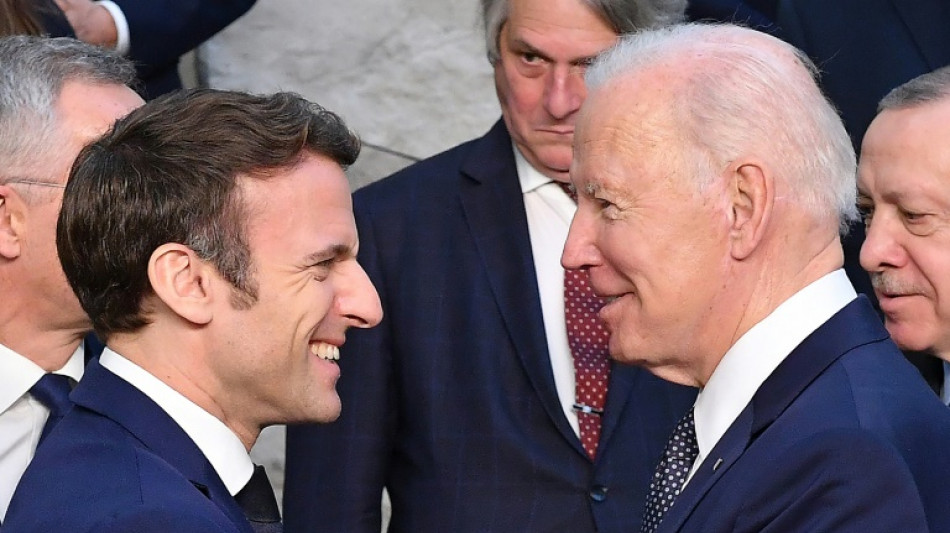
-
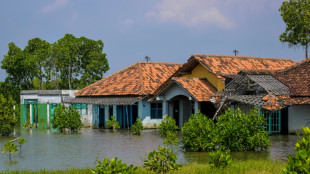 Can a giant seawall save Indonesia's disappearing coast?
Can a giant seawall save Indonesia's disappearing coast?
-
Motive probed for US shooting that killed two children, injured 17
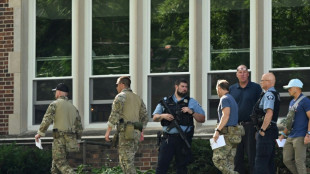
-
 Bisexual ex-Australian Rules player praised for 'courage and bravery'
Bisexual ex-Australian Rules player praised for 'courage and bravery'
-
South Korea to ban mobile phones in school classrooms
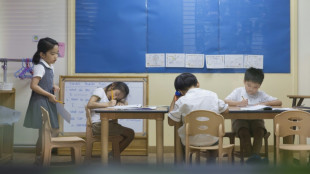
-
 Alcaraz banishes US Open demons to reach third round
Alcaraz banishes US Open demons to reach third round
-
Kipchoge feeling the pressure ahead of Sydney Marathon
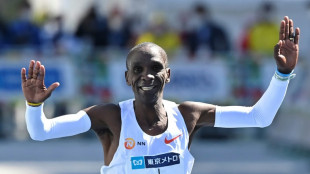
-
 Clooney and Netflix team up for Venice festival spotlight
Clooney and Netflix team up for Venice festival spotlight
-
Trump stamps 'dictator chic' on Washington
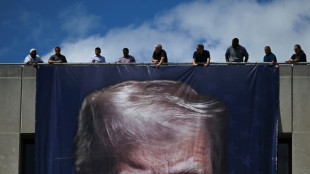
-
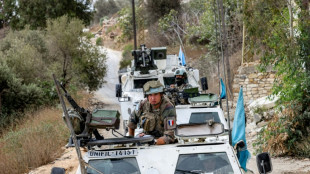 UN Security Council to decide fate of peacekeeper mandate in Lebanon
UN Security Council to decide fate of peacekeeper mandate in Lebanon
-
Alcaraz sprints into US Open third round as Djokovic advances
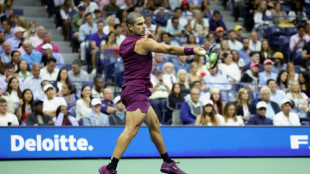
-
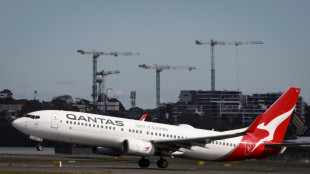 Qantas says profits up, strong travel demand ahead
Qantas says profits up, strong travel demand ahead
-
'Perfect storm': UK fishermen reel from octopus invasion
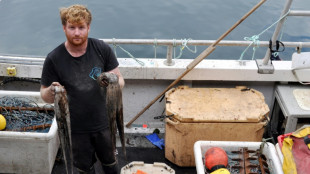
-
 Alcaraz crushes Bellucci to reach US Open third round
Alcaraz crushes Bellucci to reach US Open third round
-
Townsend reveals Ostapenko 'no class' jibe after US Open exit
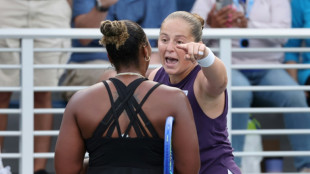
-
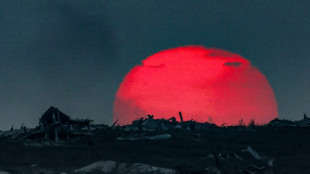 Israel ups pressure on Gaza City as Trump talks post-war plan
Israel ups pressure on Gaza City as Trump talks post-war plan
-
NATO says all countries to finally hit 2-percent spending goal
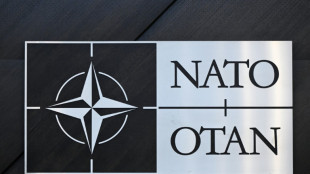
-
 Rangers humiliated, Benfica deny Mourinho's Fenerbahce Champions League place
Rangers humiliated, Benfica deny Mourinho's Fenerbahce Champions League place
-
AI giant Nvidia beats earnings expectations but shares fall
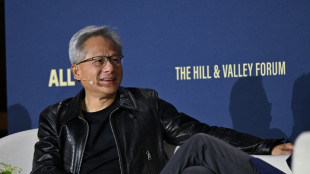
-
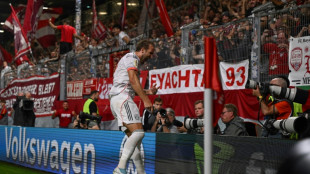 Kane rescues Bayern in German Cup first round
Kane rescues Bayern in German Cup first round
-
Argentina's Milei pelted with stones on campaign trail
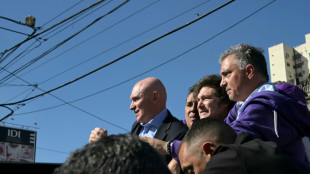
-
 Stock markets waver before Nvidia reports profits climb
Stock markets waver before Nvidia reports profits climb
-
Argentina hunts Nazi-looted painting revealed in property ad
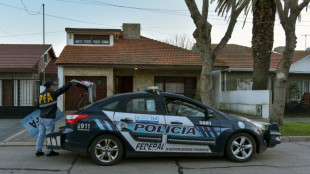
-
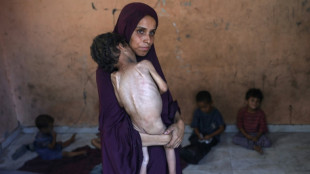 NGO says starving Gaza children too weak to cry
NGO says starving Gaza children too weak to cry
-
French PM warns against snap polls to end political crisis
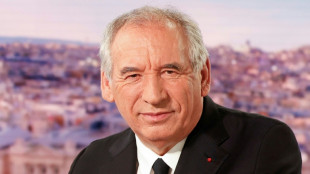
-
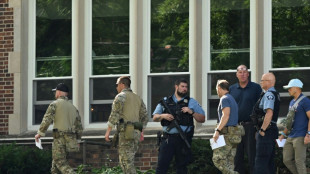 Gunman kills two children in Minneapolis church, injures 17 others
Gunman kills two children in Minneapolis church, injures 17 others
-
Djokovic advances at US Open as Sabalenka, Alcaraz step up title bids
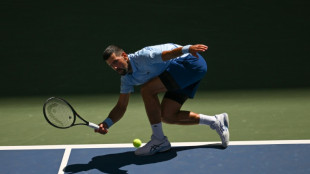
-
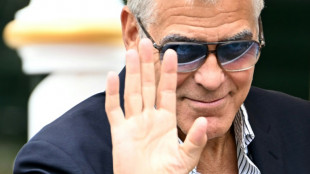 Venice Film Festival opens with star power, and Gaza protesters
Venice Film Festival opens with star power, and Gaza protesters
-
Globetrotting German director Herzog honoured at Venice festival
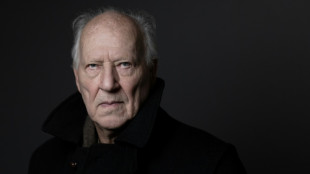
-
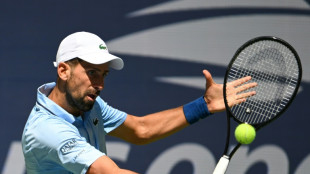 Djokovic fights off qualifier to make US Open third round
Djokovic fights off qualifier to make US Open third round
-
Duplantis, Olyslagers seal Diamond League final wins
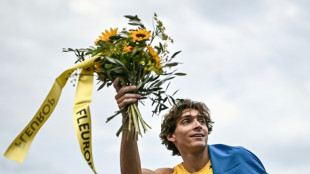
-
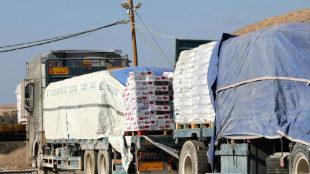 Israel demands UN-backed monitor retract Gaza famine report
Israel demands UN-backed monitor retract Gaza famine report
-
Vingegaard reclaims lead as UAE win Vuelta time trial
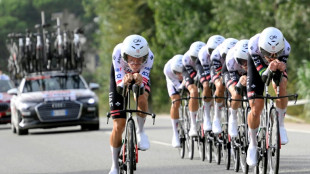
-
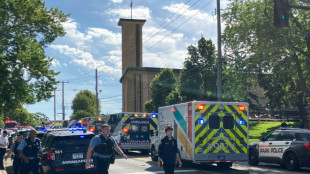 Shooter kills 2 children in Minneapolis church, 17 people injured
Shooter kills 2 children in Minneapolis church, 17 people injured
-
Defence giant Rheinmetall opens mega-plant as Europe rearms
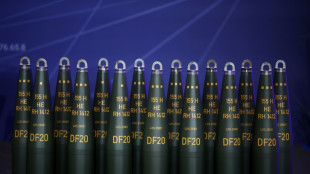
-
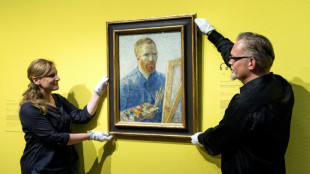 Van Gogh Museum 'could close' without more help from Dutch govt
Van Gogh Museum 'could close' without more help from Dutch govt
-
Indonesia's Tjen exits US Open as Raducanu moves on
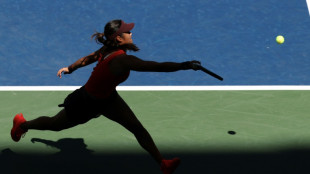
-
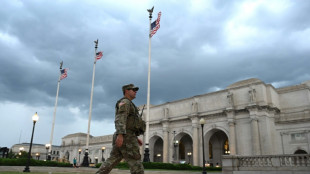 Trump administration takes control of Washington rail hub
Trump administration takes control of Washington rail hub
-
Stock markets waver ahead of Nvidia earnings

-
 Conservationists call for more data to help protect pangolins
Conservationists call for more data to help protect pangolins
-
US Ryder Cup captain Bradley won't have playing role
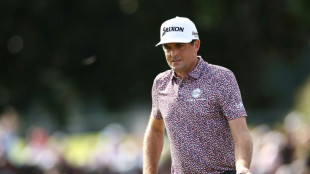
-
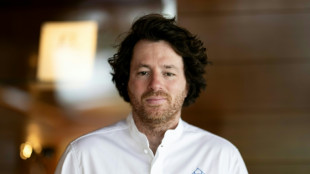 French star chef to 'step back' after domestic abuse complaint
French star chef to 'step back' after domestic abuse complaint
-
Rudiger returns, Sane dropped for Germany World Cup qualifiers
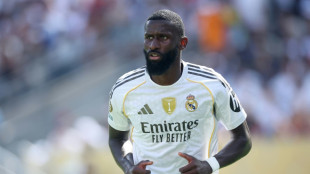
-
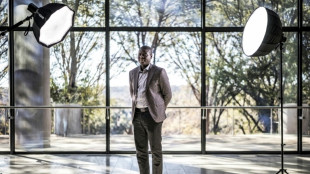 S.Africa calls US welcome for white Afrikaners 'apartheid 2.0'
S.Africa calls US welcome for white Afrikaners 'apartheid 2.0'
-
'Resident Evil' makers marvel at 'miracle' longevity
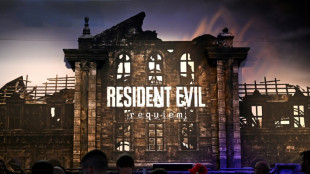
-
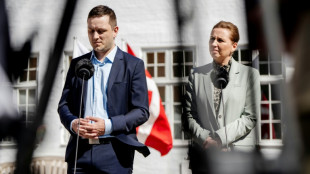 Denmark apologises for Greenland forced contraception
Denmark apologises for Greenland forced contraception
-
Hungary web users lap up footage of PM Orban's family estate
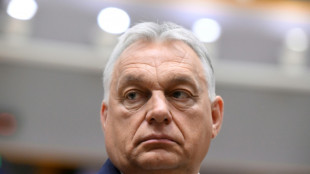
-
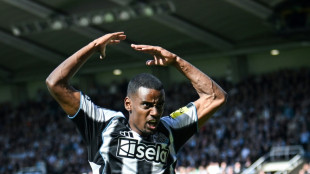 Alexander Isak selected by Sweden despite Newcastle standoff
Alexander Isak selected by Sweden despite Newcastle standoff
-
Italy's Sorrentino embraces doubt in euthanasia film at Venice
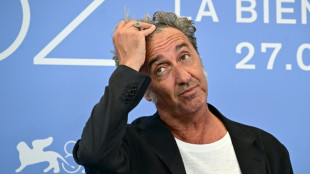
-
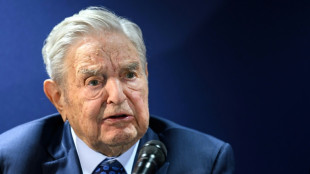 Trump urges criminal charges against George Soros, son
Trump urges criminal charges against George Soros, son
-
Wildfires pile pressure on Spanish PM
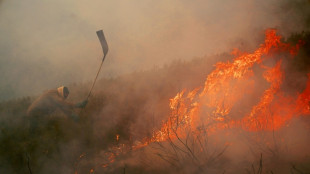

Genocide: legal term source of political controversy
The reluctance of some European states to call out Russian atrocities in Ukraine as "genocide" has sparked tensions with Kyiv, but use of the precise legal term to describe the greatest of all crimes has long been a source of political contention.
US President Joe Biden this week said Russia's actions against Ukrainians amounted to genocide, in comments echoed by Canadian Prime Minister Justin Trudeau and British Premier Boris Johnson.
But French President Emmanuel Macron, also backed by Germany's Chancellor Olaf Scholz, declined to deploy the word in a stance Ukrainian President Volodymyr Zelensky deemed "painful".
Zelensky has repeatedly branded Russia's military onslaught a "genocide", a term first coined by the Polish lawyer Raphael Lemkin in the 1940s.
It was enshrined in the 1948 United Nations Genocide Convention in the wake of the extermination of Jews and other minority groups in World War II.
Under the convention, acts of genocide are committed "with intent to destroy, in whole or in part, a national, ethnic, racial or religious group."
Russian President Vladimir Putin has also seized on the word to describe what he says is the persecution of Russian speakers in east Ukraine, a claim rubbished by Kyiv's Western allies.
- 'Use with great care' -
But beyond uncontested examples, such as the Holocaust and the 1994 mass killings of ethnic Tutsis in Rwanda, the employment of "genocide" by politicians has always been loaded.
In his comments, Macron said it was best to avoid "verbal escalations" and be "careful" with the use of the word.
In recent years, genocide has most commonly been called up by activists and some governments and legislatures to label China's persecution of its Muslim Uyghur minority, and the actions by Myanmar against the Rohingya Muslim minority.
Going further back, Turkey has long rejected Armenia's stance that the World War I massacres of Armenians by Ottoman forces were genocide.
Ankara has angrily hit back at Western governments that see the massacres as a genocide, including when Biden recognised it as such in 2021.
Ukraine has in past decades also vigorously campaigned in the face of Russian opposition for the Stalin-era famines on its territory in the 1930s -- known as the Holodomor -- to be recognised as genocide.
Cecily Rose, a professor of international public law at Leiden University in the Netherlands, said there was "extensive evidence" to support the Rohingya and Uyghur genocides.
But she cautioned that the term "should be used by politicians with great care and caution and preferably on the basis of an independent fact-finding body," she said.
William Schabas, professor of international law at Middlesex University in London, described the word genocide as a "superlative" used when terms like war crimes or crimes against humanity do not seem strong enough.
"The problem with a superlative is that you have nothing further to use. You can only use it once," he said.
"The word genocide has a precise legal definition but it is also widely used by politicians and activists because of its capacity to inflame and excite," he added.
- 'Do same with all conflicts' -
The International Criminal Court's chief prosecutor Karim Khan has already opened a probe into Ukraine and held virtual talks with Zelensky over what appears to be the targeted killings of civilians.
Celine Bardet, a lawyer and international crime investigator, applauded the swift opening of an inquiry but said she wished the "same is now done with all conflicts".
Urging that emotions should not get in the way of justice, she said the ICC risked reinforcing a reputation that it is an instance that "only works when the West pushes it to do so".
Biden said Tuesday that use of the term was apt, as it has "become clearer and clearer that Putin is just trying to wipe out the idea of even being able to be a Ukrainian".
Macron appeared to suggest particular prudence was needed in this context, given that Ukrainians and Russians were "brotherly peoples" with very similar ethnic origins.
But the comment by Macron -- who so far has not joined the line of European leaders heading to talks in Kyiv with Zelensky -- touched a particularly painful nerve in Ukraine.
"Talk of 'brotherly' ties between Russia and Ukraine is misguided. Brothers don't torture, rape, kill the others' family," Ukrainian foreign ministry spokesman Oleg Nikolenko said on Twitter.
T.Bondarenko--BTB
